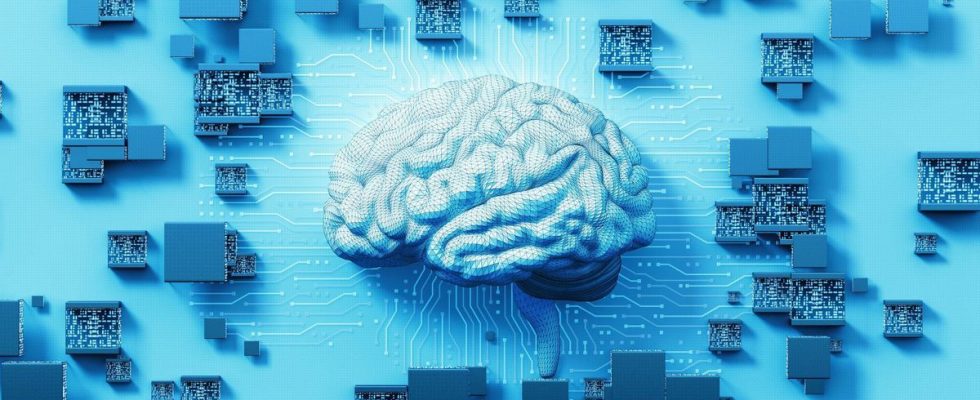Published on
Updated
Reading 1 min.
American researchers have succeeded in connecting human brain cells to a printed circuit and making them “intelligent”, capable of processing information in any case. This type of experiment could lead to the development in the future of new hybrid tools, such as computers, partly made up of human cells cultivated in the laboratory.
This project, called “Brainoware”, is the work of researchers at Indiana University in Bloomington. To do this, they connected organoids, 3D cellular structures grown in the laboratory capable of imitating the functioning of an organ (here neurons), to thousands of electrodes. These electrical circuits were able to capture information through electronic pulses. For this first experience, Brainoware demonstrated its ability to learn and communicate. The researchers, for example, trained it, via AI, to recognize human voices with an accuracy of 78%.
This work, published in the journal Nature Electronics, make it possible to pave the way for a new generation of “biocomputers”, hybrid computers which would combine the human brain and a machine to carry out complex calculations. Ultimately, this technology could revolutionize many fields, such as robotics. It could be used to create robots that are smarter, more autonomous and able to interact with humans in a more natural way. In the field of health, it could be useful in the development of new treatments for neurological disorders, such as Alzheimer’s disease. It could also test the effectiveness and toxicity of different treatments.
The concept of organoid intelligence is still recent. As a reminder, organoids are miniature bodies created from cells raised in vitro. They are made up of stem cells that grow and organize to replicate the characteristics of a specific organ, such as the brain. The idea is then to associate them with so-called intelligent chips in order to boost their potential. In absolute terms, it could be the lethal weapon in terms of artificial intelligence.
